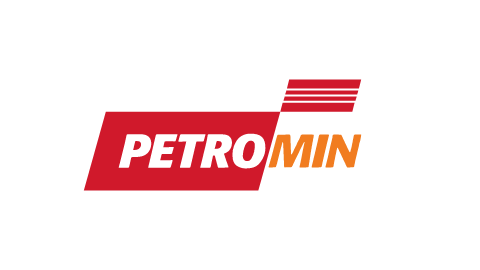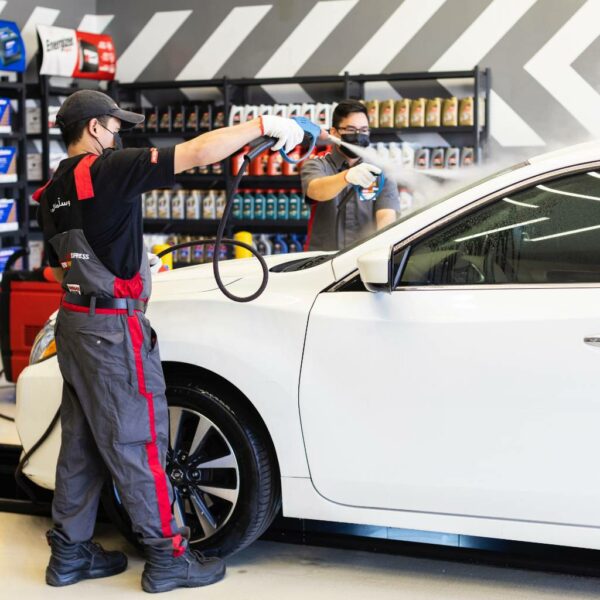Pretromin Express: Water Efficiency
While some of our Group investments are driving a shift to electric from the internal combustion engine, there will always be a need to keep vehicles clean. Scaling ultra-efficient methods plays an important role in building a more sustainable business.

Eco-steam wash rolled out
Petromin Express operates over 650 world-class quick service centers, offering a wide range of vehicle care solutions under one roof. This includes all major oil, battery, and tire brands, as well as A/C and car wash services.
0
Petromin stations offer eco-steam wash
0%
reduction in water consumption vs conventional wash
The challenge
Saudi Arabia has been classified as one of the most water-scarce countries on earth. It’s estimated there are 9 million passenger vehicles and about 1 million commercial vehicles in Saudi Arabia.
Local weather conditions mean cars are washed regularly, with traditional car wash methods consuming a large volume of water, typically 100 – 120 liters. Given the number of vehicles, the potential for water savings is huge.


The response and results
To tackle wasted water produced by traditional car-washing and to eliminate the use of harsh chemicals, Petromin rolled out its eco-steam car wash system after a very effective pilot in 2020. Not only is the steam wash very effective in cleaning it also only uses around 4-5 liters of water, saving a staggering 100 liters per wash versus a conventional car wash.
The water consumption of traditional pressure washer systems is about 1,500 – 2,000 l/h, while the water consumption of our steam generators is about 12 l/h.
Aside from its sustainable nature, the eco-steam car wash has economical value; the ability to wash more cars in less time, 90% less use of detergents, 30% less manpower, and 90% reduction in water usage.
As of 2021, the eco-steam car wash system has been installed in 235 stations.
On average, 175 eco washes are performed on a daily basis, delivering 13 million liters of water savings annually, the equivalent of 14,000 people’s annual drinking water.